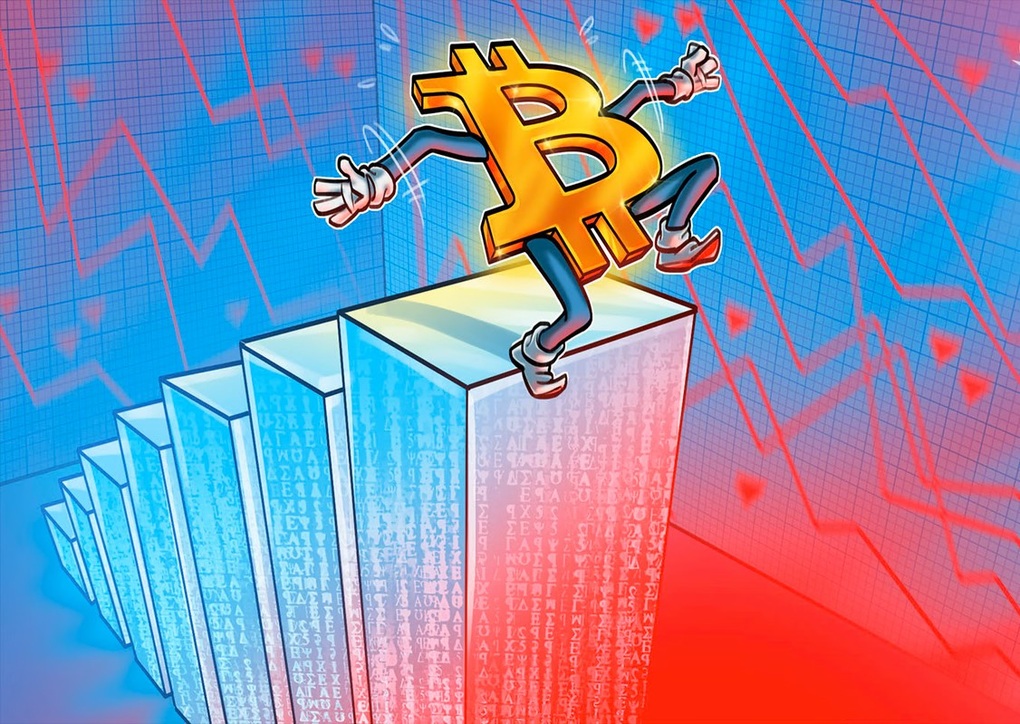The mood on Wall Street and in the world of U.S. economic policy is more tense than ever. The haunting phenomenon of "stagflation" - the economic stagnation, sluggish growth, and hyperinflation that rocked the global economy in the 1970s - seems to be threatening to return. The U.S. Federal Reserve (Fed) cannot ignore it.
Although Fed Chairman Jerome Powell, in his latest press conference on May 7 (US time), still tried to reassure the market by asserting that the US economy "remains stable" and the Fed is "well-positioned to see what happens next", subtle changes in the policy statement revealed a growing concern about the real trajectory of the economy.
Specifically, the Fed decided to keep the base interest rate unchanged, while for the first time acknowledging the risk that inflation could be more persistent than expected while the unemployment rate is also likely to increase - 2 perfect pieces of the stagflation picture.
This is a classic dilemma for policymakers: If they launch economic stimulus to stop the slowdown, they risk further fueling inflation. Conversely, if they continue to tighten monetary policy to curb inflation, the economy could be pushed into a deeper recession.
From Fed worries to “good news” for bitcoin?
Amidst this challenging backdrop, an interesting and somewhat surprising perspective has emerged from the digital asset market.
Zach Pandl, Director of Research at Grayscale, one of the world's leading digital asset management companies, did not hesitate to share on social network X right after the Fed meeting: " The Fed is worried about inflation. And in our opinion, this is good news for bitcoin."

As traditional financial markets struggle, bitcoin is expected to become a new safe haven (Illustration: Cointelegraph).
This is not a sentimental statement. In a detailed analysis published last month, Grayscale argued that factors such as rising tariffs could exacerbate the risk of a recession. That scenario has historically hurt traditional asset classes like stocks and bonds, but tends to benefit scarce, “safe haven” assets like gold.
Bitcoin did not survive previous inflations, Grayscale stressed, but is now seen as a scarce digital asset that serves as a modern store of value.
The firm further analyzed that in an environment where prices are soaring and economic growth is sluggish, investors will look for ways to preserve value, and bitcoin, with its limited supply and decentralized nature, could become an attractive option.
Furthermore, Grayscale also pointed out another potential factor: "Trade tensions could put pressure on the role of the USD as a global reserve currency, thereby expanding investment opportunities in alternative assets such as gold and bitcoin."
Market reacts cautiously
Immediately after the Fed’s announcement and Chairman Powell’s speech, the cryptocurrency market generally reacted rather cautiously. Bitcoin prices were almost flat, fluctuating within a narrow range. On Wednesday morning (May 7, US time), Bitcoin prices briefly touched $97,500, reportedly due to positive expectations from US-China trade negotiations, before adjusting slightly to around $96,500, recording an increase of about 1.6% in 24 hours.
The CoinDesk 20 Index (CD20), a broader measure of the health of the cryptocurrency market, also edged up just 0.3% over the same period. The gains were partially capped by declines of 1% to 3% in several other cryptocurrencies, including XRP, AVAX, UNI, NEAR and AAVE.
On the other hand, the US stock market seemed to find some optimism after the previous session's decline. The S&P 500 index rose 0.4%, and the Nasdaq Composite index also recorded a gain of 0.3% at the end of the trading session.
The Fed's caution is well-founded. Chairman Powell himself admitted in his speech: "Uncertainty about the direction of the economy is very high, and downside risks are increasing." Bloomberg news agency also quickly commented after the meeting: "The Fed has warned about the risk of slowing growth and rising inflation."
The Fed’s already tough fight against inflation now faces the specter of recession. Balancing the goal of controlling prices and maintaining economic growth will be a very complex task.
While policymakers are scrambling to find the optimal solution, comments from Grayscale and a segment of investors offer a new perspective on the role of bitcoin in a volatile economic scenario.
Will “digital gold” really shine when the traditional economy faces the nightmare of recession? This is still an open question, and the answer will depend on many factors, from macroeconomic developments, Fed policy decisions, to market acceptance and confidence in this new asset class. However, one thing is certain: concerns about recession and inflation will continue to overshadow investment decisions in the coming time.
Source: https://dantri.com.vn/kinh-doanh/lam-phat-la-con-dau-dau-cua-fed-nhung-dem-toi-co-hoi-bat-ngo-cho-bitcoin-20250508134419619.htm


































































































Comment (0)